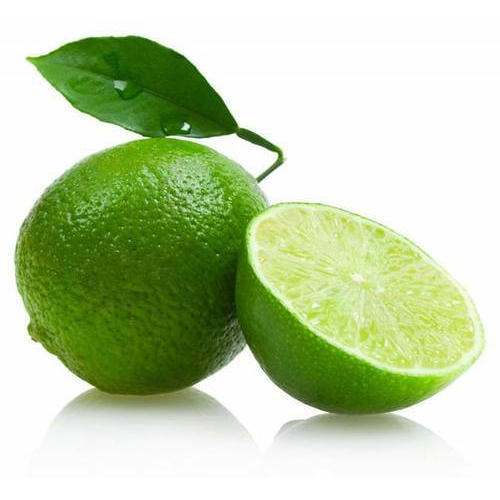Known for adding flavor, freshness, and acidity to drinks and foods, lemons are the most commonly used citrus fruits. Lemons are also used for garnish and flavoring desserts. They can be juiced, cut into wedges, rounds, or grated to make lemon zest. Lemons are naturally low in calories and carbohydrates and available all year long.
Lemon Nutrition Facts
Serving Size 1 fruit (2-1/8" dia) (58 g)
Per Serving % Daily Value*
Calories 17
Calories from Fat 1.5
Total Fat 0.2g 0%
Saturated Fat 0g 0%
Polyunsaturated Fat 0.1g
Monounsaturated Fat 0g
Cholesterol 0mg 0%
Sodium 1mg 0%
Potassium 80mg 2%
Carbohydrates 5.4g 2%
Dietary Fiber 1.6g 6%
Sugars 1.5g
Protein 0.6g
Vitamin A 0% · Vitamin C 51%
Calcium 2% · Iron 2%
*Based on a 2,000 calorie diet
Carbs in Lemons
One whole lemon contains 17 calories and just over five grams of carbohydrate. The carbs are primarily fiber (1.6 grams) and sugar (1.5 grams).
The glycemic load of a whole lemon is estimated to be one, making it a low-glycemic food.
Fats in Lemons
There is a very small amount of fat in lemons, under one gram if you consume the whole fruit.
Protein in Lemons
Lemons are not a good source of protein, providing less than one gram per fruit.
Micronutrients in Lemons
Lemons are an excellent source of vitamin C.
Health Benefits
The health benefits of lemons are provided by the vitamin C in the fruit. Lemons have been used throughout history to manage vitamin C deficiency.
In the late 1700s, the British Navy discovered that scurvy, a vitamin C deficiency disease, could be cured by eating lemons and oranges. Today, scurvy is a rare disease in developed countries, given that it can be prevented with as little as 10 mg of vitamin C.
Most people don't eat whole lemons anymore and instead use the lemon juice. To get a significant amount of nutrients from lemon juice, you'd have to use a very large quantity. Still, lemon juice contains many phytonutrients, which also can provide health benefits.
Studies indicate that higher intakes of vitamin C from either diet or supplements are associated with a reduced risk of cardiovascular disease (CVD), including coronary heart disease and stroke.
Vitamin C is an important water-soluble vitamin that has been shown to boost immunity, prevent aging, and aid in repairing cells and tissues.
Common Questions
Can you eat a lemon whole?
You can eat a whole lemon, but you probably won't want to. Their intense sour flavor makes them difficult to eat on their own.
Why does adding lemon juice to apple prevent brown spots?
Certain foods, such as apples, turn brown when they begin to oxidize. The process is referred to as enzymatic browning and occurs when certain enzymes and chemicals, known as phenolic compounds, combine and react to oxygen. The brown pigment, melanin, is completely harmless but not very appealing to the eye. Other foods, such as pears, bananas, avocado, eggplants, and potatoes also undergo enzymatic browning. The acidic nature of lemon juice prevents browning by denaturing the enzymes.
Can the acid in lemon damage your teeth?
Yes. The acid in lemon juice can strip the enamel on teeth, making them weak and sensitive. If you tend to drink water with lemon often, using a straw can reduce the exposure of acid to your teeth.
What should I look for when selecting lemons?
Look for lemons that have thin skin; this is an indicator of juiciness.
Lemons should feel heavy for their size and appear bright, vibrant yellow, with a smooth surface. Avoid lemons that are soft and spongy and have wrinkled skin.
What is the best way to store lemons?
Store lemons in the refrigerator in a plastic bag for optimal shelf life, about 2 to 3 weeks. If you keep lemons out at room temperature, they are likely to last for about a week.
Recipes and Preparation Tips
You can use lemons to add color and flavor to all different types of cuisines and meal types.
Make your own salad dressing, using lemons as a nutritious way to reduce your sodium and calorie intake.
Spice up your vegetables with a lemony sauce. Cut up lemon wedges and slices to flavor your water or seltzer and use lemon juice in fruit salads to prevent browning or as an ingredient in marinades to tenderize meat.
Lemons and lemon juice can also be an important ingredient in making healthier dessert options.
Be sure to utilize the whole lemon, using the skin for lemon zest (the yellow, outer skin). To zest a lemon, use a peeler or a grater taking care not to cut the bitter inner white skin, called the pith.
Try a refreshing Greek lemon-garlic salad dressing or an easy main course with shrimp scampi.
Allergies and Interactions
People with an allergy to citrus fruits should avoid lemon or products made with lemon or lemon zest. There are also reports of asthma as a reaction to inhalation of lemon or orange peel. If you suspect an allergy to lemon, seek care from a qualified allergy specialist.
According to the Natural Medicines Database, it is not known if there are drug interactions with lemon.
Was this page helpful?
Content Courtesy:-https://www.verywellfit.com |












